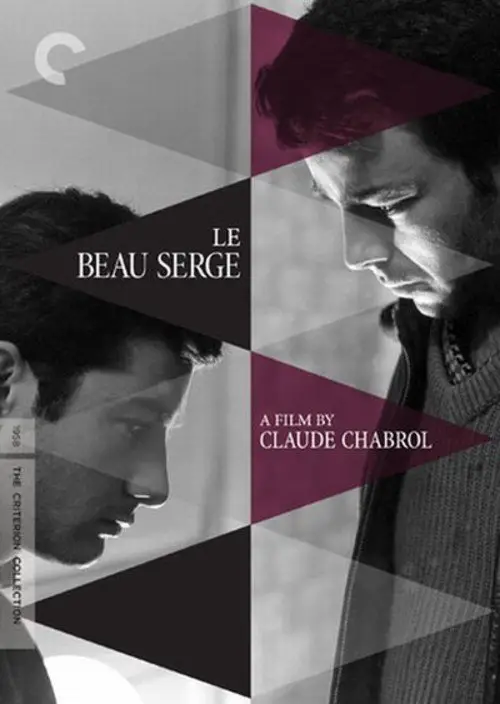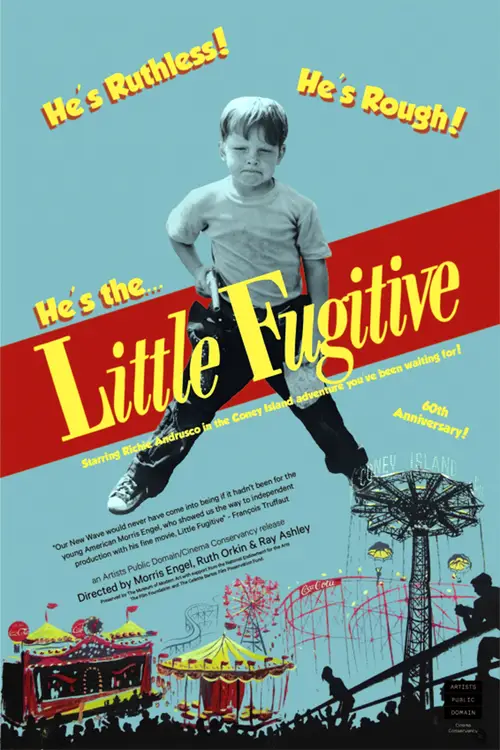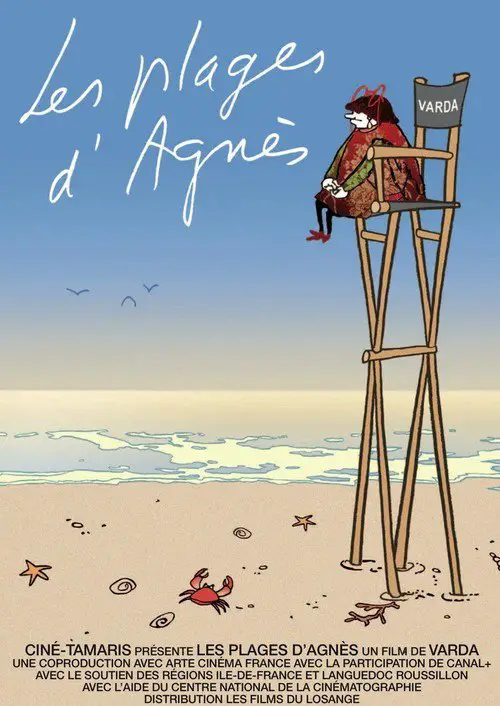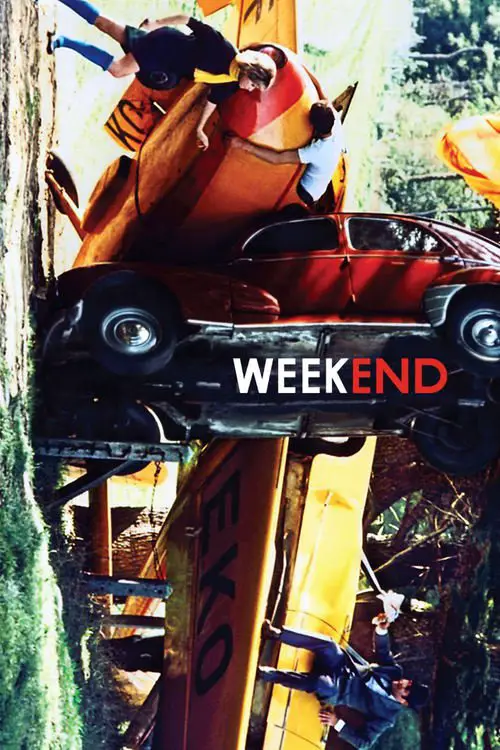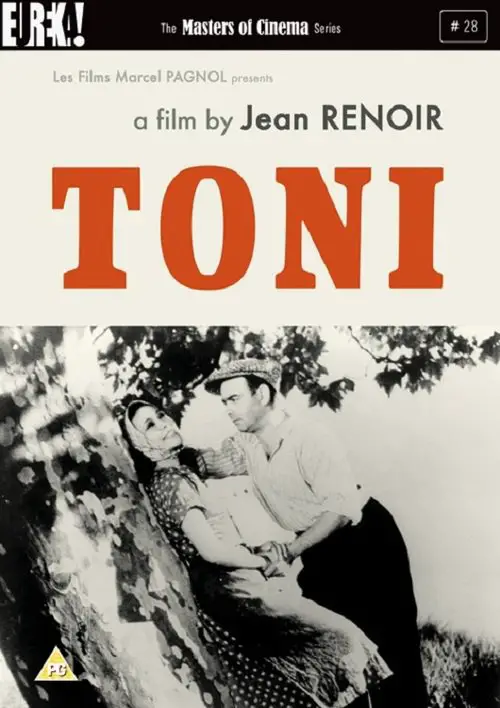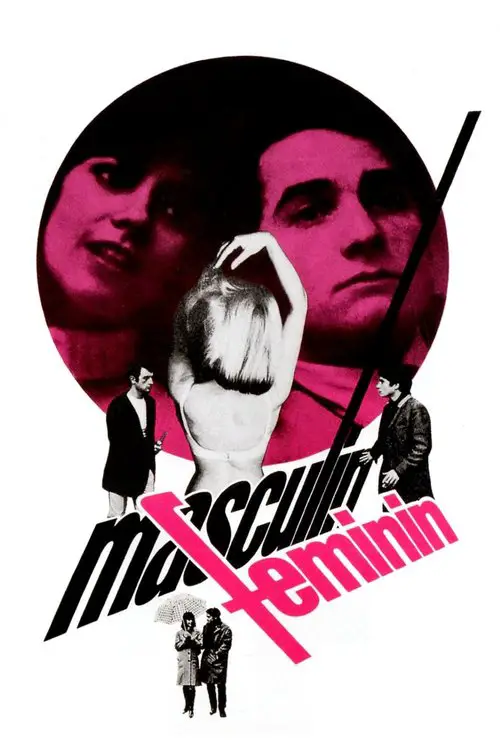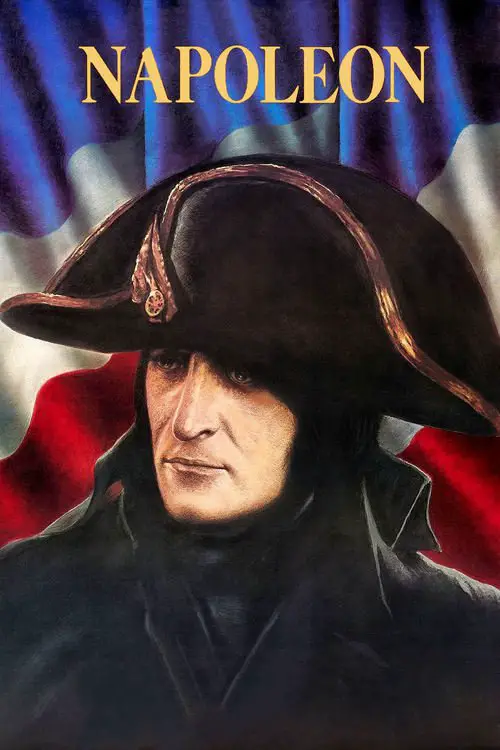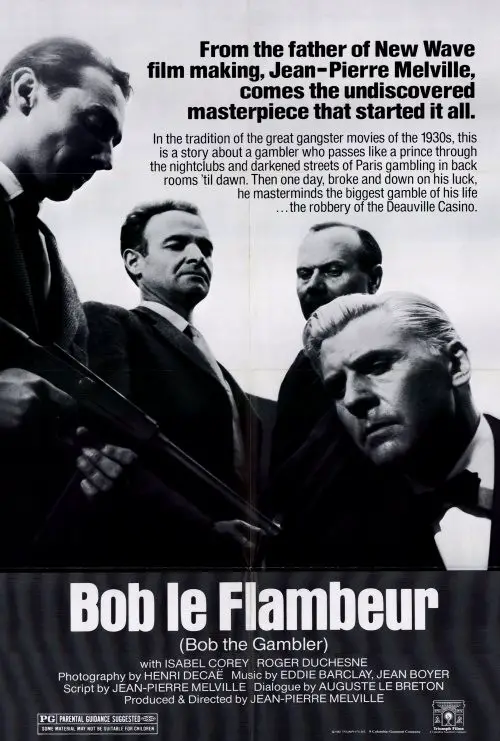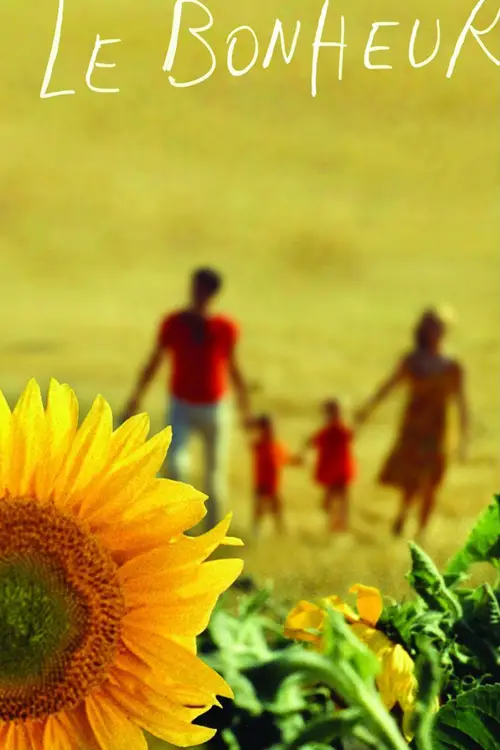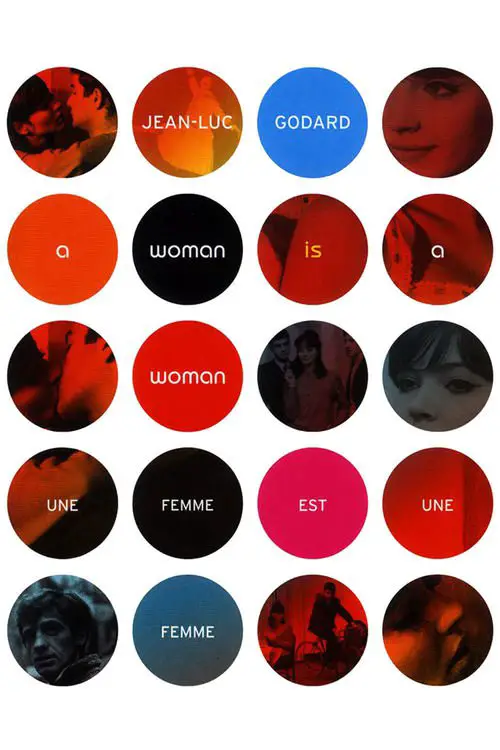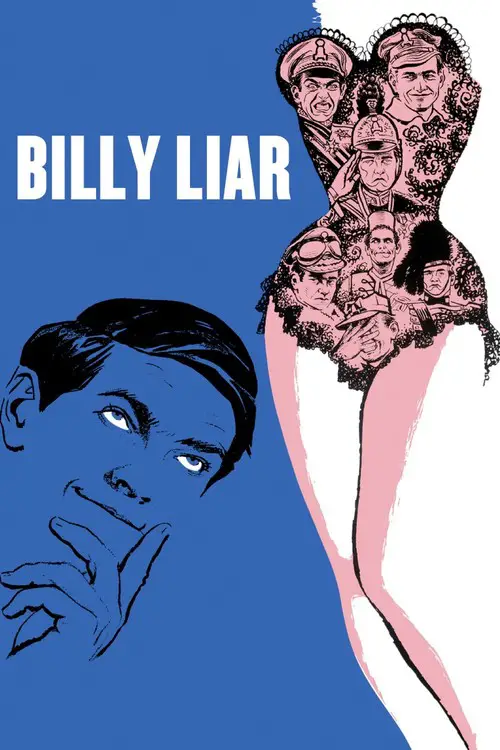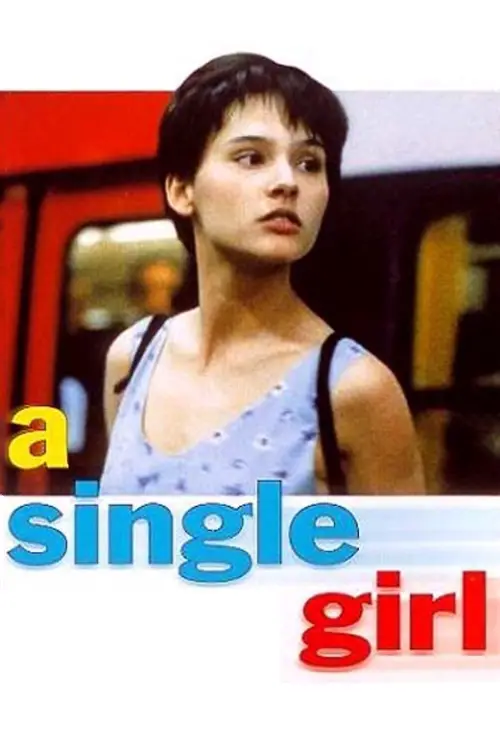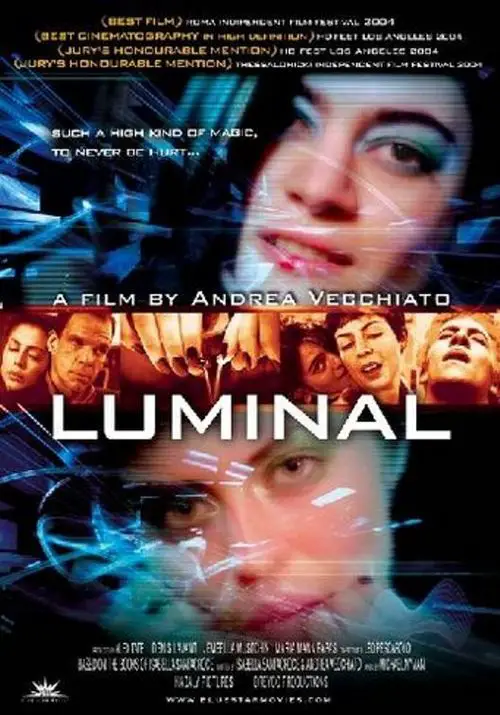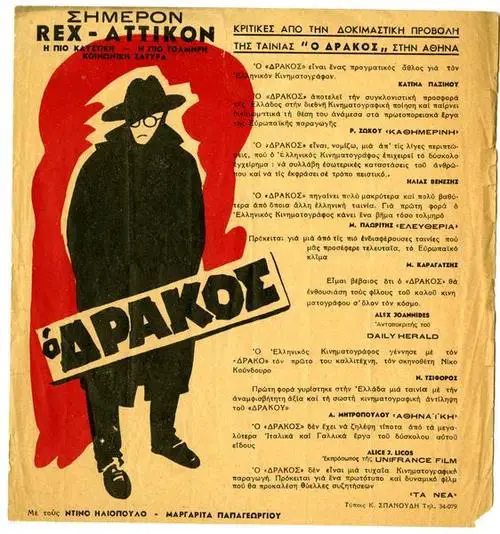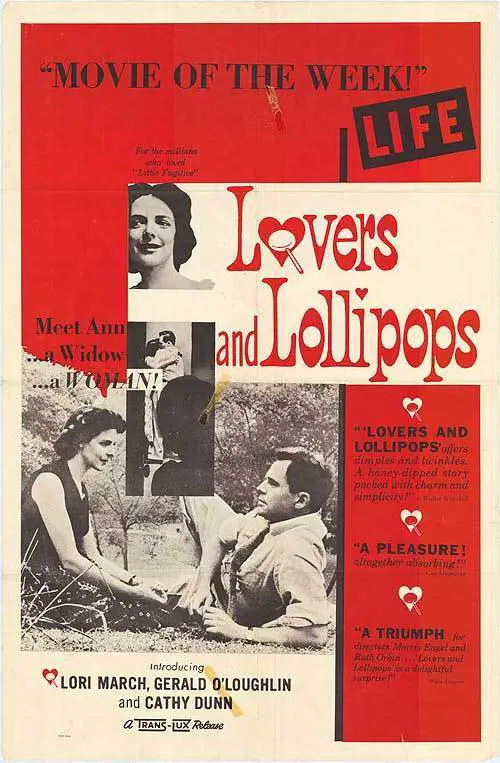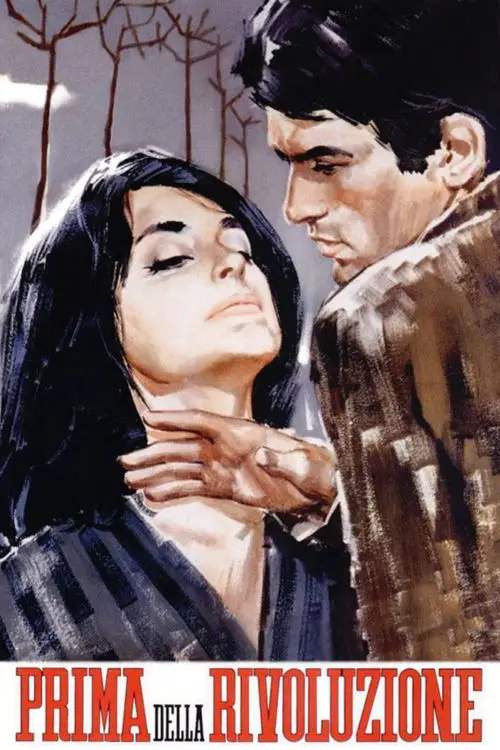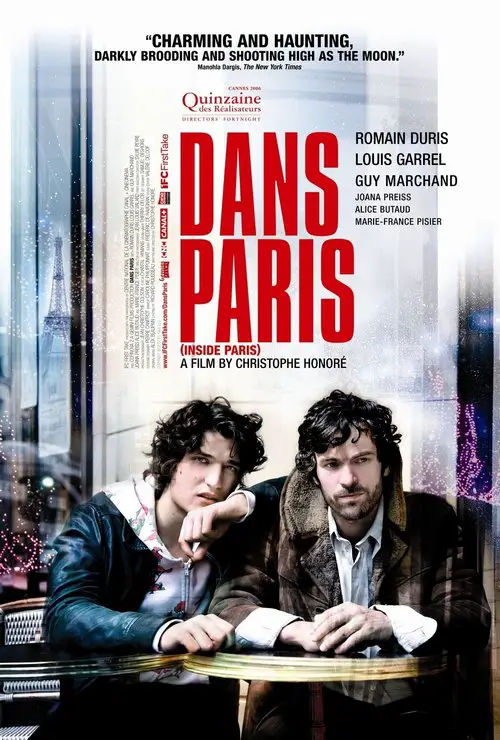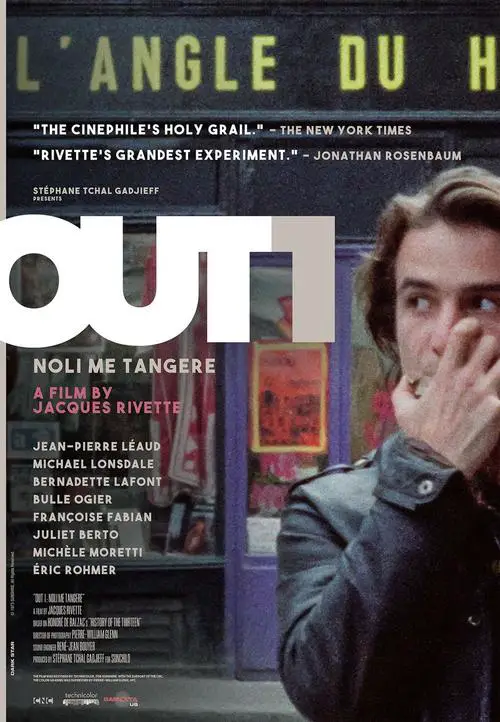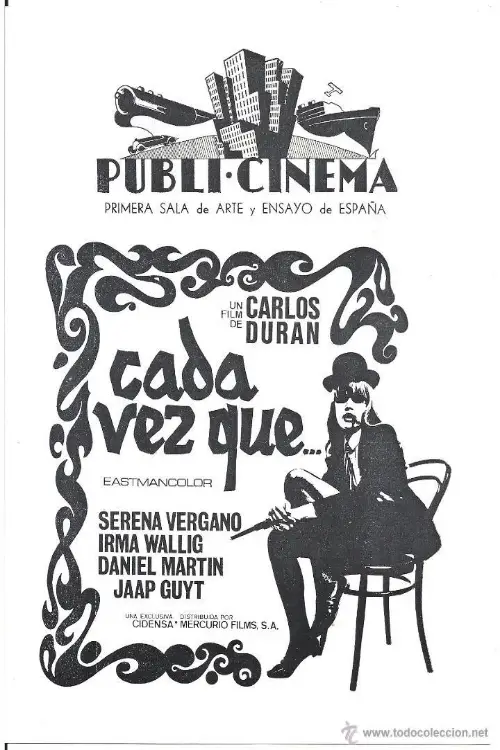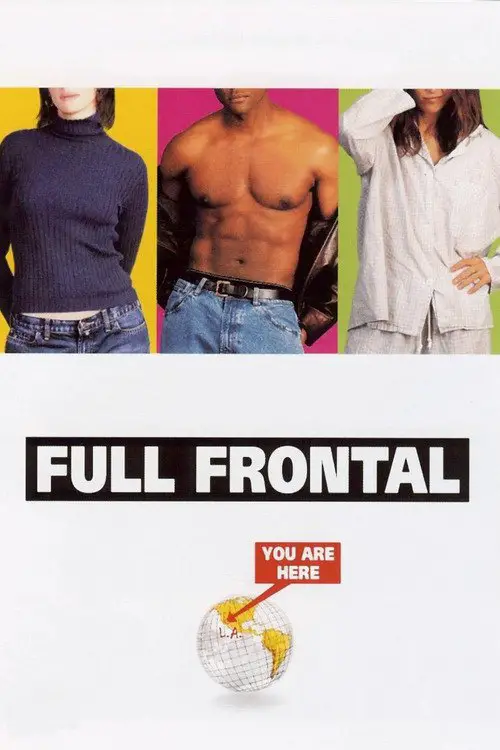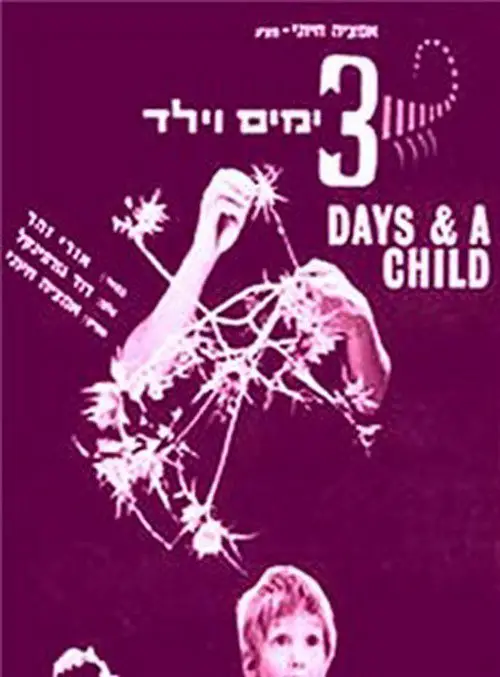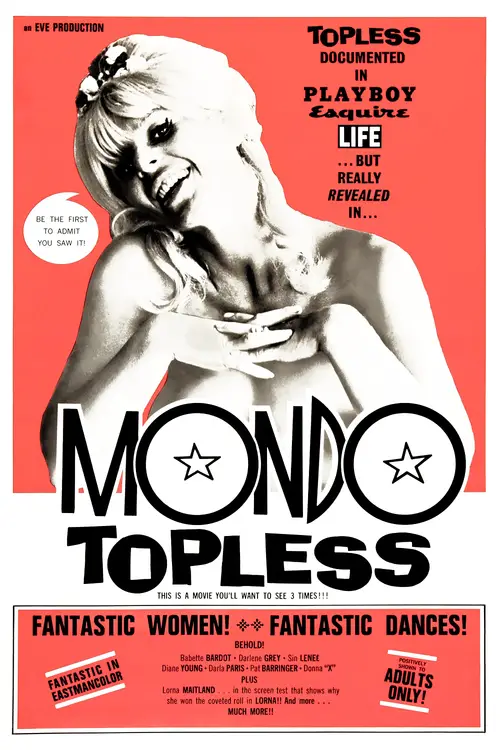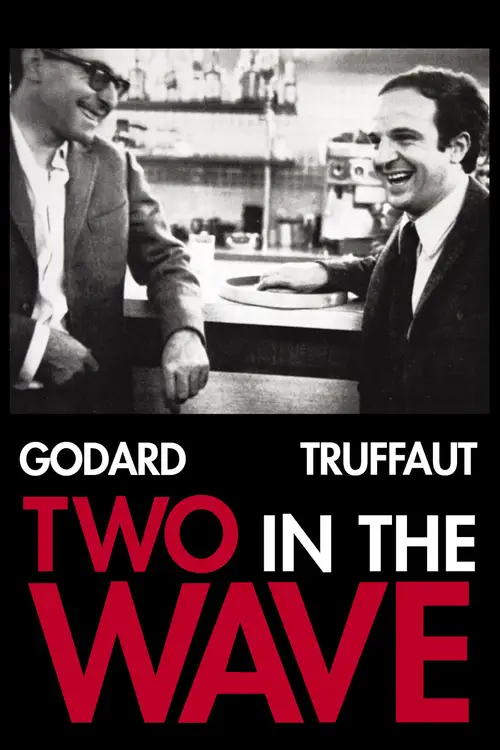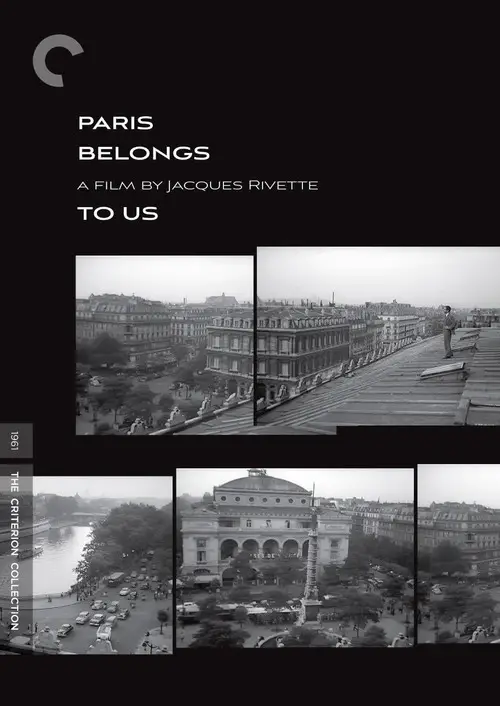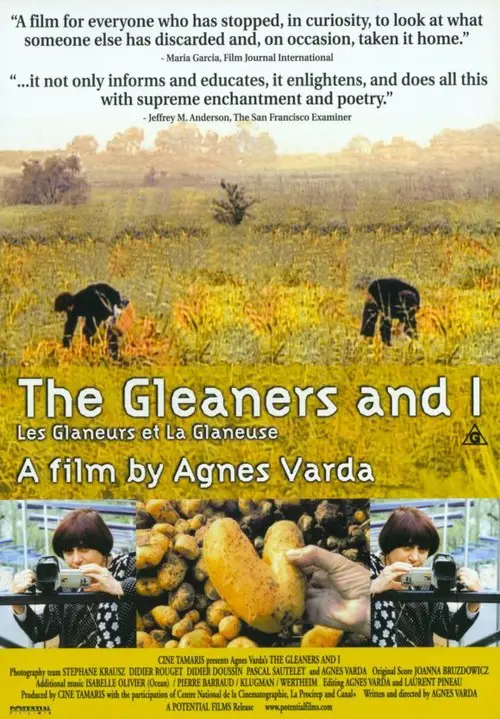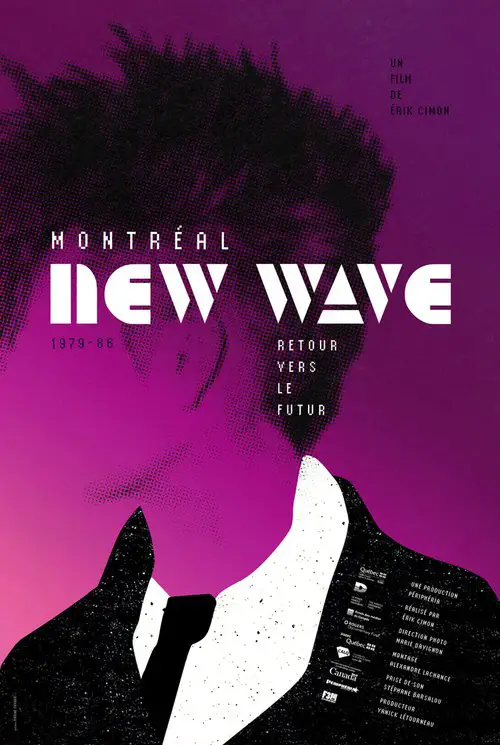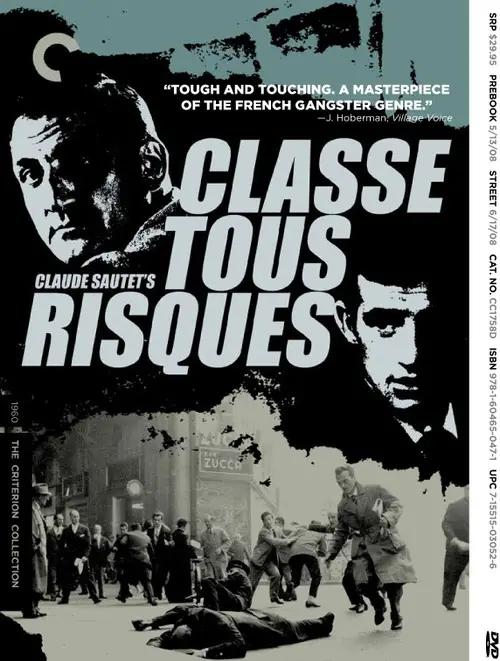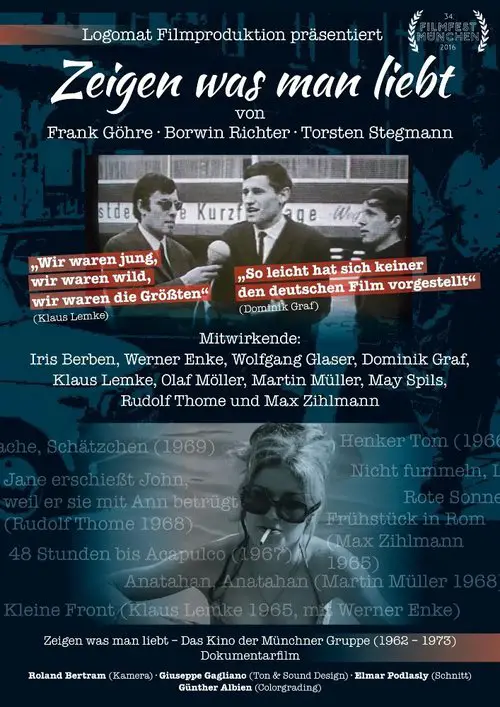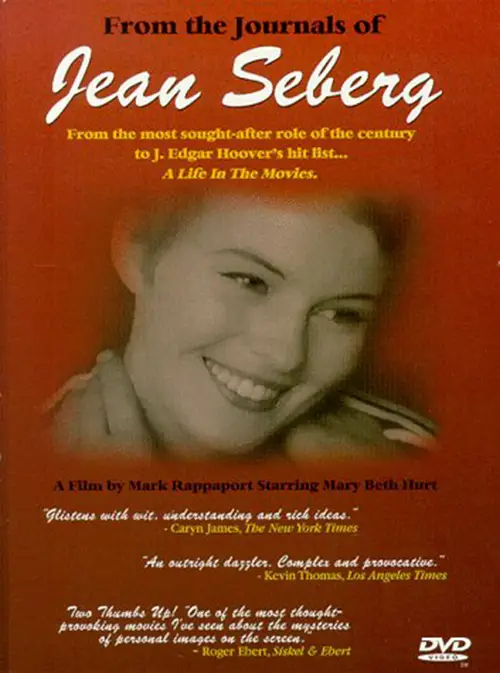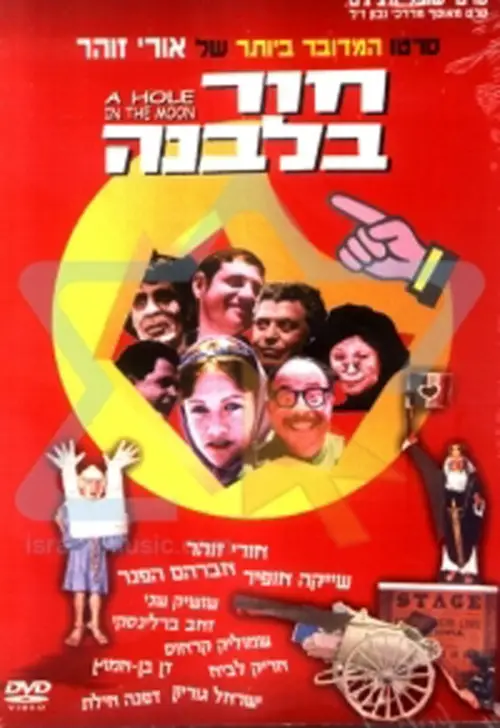Adieu Philippine (1962)
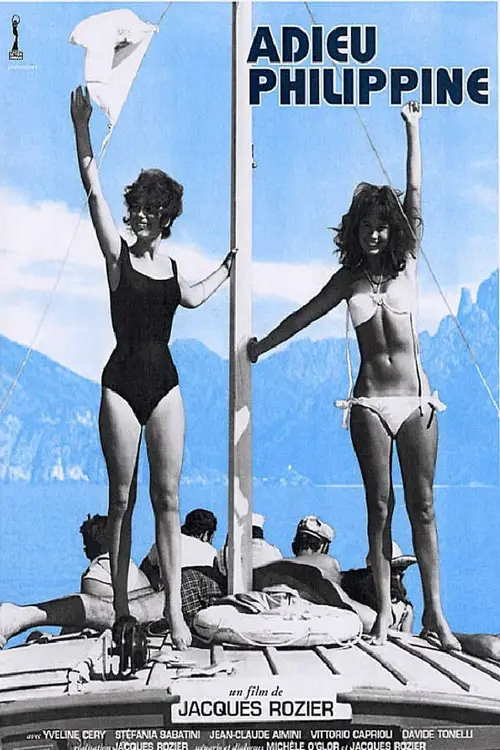
Similar movies
Francois (Jean-Claude Brialy) returns to his village after a long absence. He finds his friend Serge (Gérard Blain) who has married Yvonne, and has developed an alcohol problem after the death of their stillborn child. Serge has become an angry, bitter figure not unlike the roles of James Dean, refusing to face reality and adulthood and Francois must help him.
Joey Norton, seven years old, lives with his older brother Lennie in a lower middle class neighborhood of Brooklyn. Joey is too small to be taken seriously by Lennie and Lennie's friends. One day, while their mother is away visiting her sick mother, Lennie and his friends play a joke on Joey. They stage an incident so that Joey thinks he has shot and killed his brother. Francois Truffault credits this classic with inspiring the French New Wave.
Filmmaking icon Agnès Varda, the award-winning director regarded by many as the grandmother of the French new wave, turns the camera on herself with this unique autobiographical documentary. Composed of film excerpts and elaborate dramatic re-creations, Varda's self-portrait recounts the highs and lows of her professional career, the many friendships that affected her life and her longtime marriage to cinematic giant Jacques Demy.
In the 1920s, the Provence is a magnet for immigrants seeking work in the quarries or in the agriculture. Many mingle with locals and settle down permanently - like Toni, an Italian who has moved in with Marie, a Frenchwoman. Even a well-ordered existence is not immune from boredom, friendship, love, or enmity, and Toni gets entangled in a web of increasingly passionate relationships. For there is his best pal Fernand, but also Albert, his overbearing foreman; there is Sebastian, a steady Spanish peasant, but also Gabi, his young rogue relative; there is Marie, but there is also Josefa.
Cléo is a pop singer who wanders around Paris while she awaits her biopsy results in fear she may have cancer. As Cléo readies herself to meet with her doctor at 7 o'clock, she meets with several friends and strangers while trying to grapple with mortality. Sensing indifference from those nearest to her, she finds herself questioning the doll-like image people have of her and is overcome by a feeling of solitude and helplessness. She finally finds some comfort in the company of stranger she meets in a park and with whom she is able to have a sincere conversation.
Charles is a young provincial coming up to Paris to study law. He shares his cousin Paul's flat. Paul is a kind of decadent boy, a disillusioned pleasure-seeker, always dragging along with other idles, while Charles is a plodding, naive and honest man. He fell in love with Florence, one of Paul's acquaintances. But how will Paul react to that attempt to build a real love relationship ? One of the major New Wave films.
A massive 5 1/2 hour biopic of Napoleon, tracing his career from his schooldays (where a snowball fight is staged like a military campaign), his flight from Corsica, through the French Revolution (where a real storm is intercut with a political storm) and the Terror, culminating in his triumphant invasion of Italy in 1797 (the film stops there because it was intended to be part one of six, but director Abel Gance never raised the money to make the other five). The film's legendary reputation is due to the astonishing range of techniques that Gance uses to tell his story, culminating in the final twenty-minute triptych sequence, which alternates widescreen panoramas with complex multiple- image montages projected simultaneously on three screens.
A coming-of-age tale centered around Hannah, a young girl who is living a troubled family life. Set in 1963, Hannah develops a fascination with Jean-Luc Godard's then-recent film "Vivre sa vie". As she begins to model herself after the film's lead role, Hannah slowly begins to explore the confusing nature of her sexuality.
The film "O Drakos" is about a mousy, timid, bespectacled guy in Athens who sees a newspaper photo of a fugitive criminal mastermind called "The Fiend". It's the spitting image of the harmless nerd. A gang of starstruck crooks sees our hapless hero, mistakes him for the Fiend, rescues him from imminent arrest and more or less forces him to lead a desperate criminal scheme they've got going. And finally, the poor little man becomes enamoured of the idea, decides for once in his sad life to be a tough guy and a hero. He surrenders to his bizarre destiny, to be "The Fiend of Athens"... O Drakos is brilliant: a dark, satirical noir masterpiece... is like a French New Wave picture crossed with a British Ealing comedy, with something of Fellini in its zinging energy, and Carol Reed's Odd Man Out and The Third Man. The stark, dramatic key-lighting in the "arrest" scene gives the imagery a Weegee-type crime-scene aesthetic...
The study of a youth on the edge of adulthood and his aunt, ten years older. Fabrizio is passionate, idealistic, influenced by Cesare, a teacher and Marxist, engaged to the lovely but bourgeois Clelia, and stung by the drowning of his mercurial friend Agostino, a possible suicide. Gina is herself a bundle of nervous energy, alternately sweet, seductive, poetic, distracted, and unhinged. They begin a love affair after Agostino's funeral, then Gina confuses Fabrizio by sleeping with a stranger. Their visits to Cesare and then to Puck, one of Gina's older friends, a landowner losing his land, dramatize contrasting images of Italy's future. Their own futures are bleak.
Paul, depressed from his recent break-up with Anna, returns home to Paris and moves back in with his divorced father and amorous younger brother, Jonathan. While his carefree sibling and doting father try in vain to cheer him up, a visit from his mother seems to be the only thing that brings him joy. When Paul is then left in the house to brood and talk to one of his brother's girlfriends.
FOR LOVERS ONLY is a story of a MAN and a WOMAN in love. After seeing each other for the first time in years while on separate work assignments in Paris, the LOVERS flee together and travel by train, car and motorcycle, as their love affair takes them across France-from Normandy to St. Tropez. Throughout their trip, both characters experience long periods of carefree bliss and unrepentant joy punctuated by brief moments of guilt and confusion. The final outcome of the affair is left open to interpretation.
Mondo Topless is a 1966 pseudo documentary directed by Russ Meyer, featuring Babette Bardot and Lorna Maitland among others. It was Meyer's first color film following a string of black & white "roughie nudies", including Faster, Pussycat! Kill! Kill! While a straightforward sexploitation film, the film owes some debt to the French new wave and cinéma vérité traditions, and is known to some under the titles: 'Mondo Girls' and 'Mondo Top.'Its tagline: "Two Much For One Man...Russ Meyer's Busty Buxotic Beauties ... Titilating ... Torrid ... Untopable ... Too Much For One Man!"The film was banned in Finland.http://en.wikipedia.org/wiki/Mondo_Topless
A brash and precocious ten-year-old (Catherine Demongeot) comes to Paris for a whirlwind weekend with her rakish uncle (Philippe Noiret); he and the viewer get more than they bargained for, however, in this anarchic comedy from Louis Malle, which rides roughshod over the City of Light. Based on a popular novel by Raymond Queneau that had been considered unadaptable, Malleâs audacious Zazie dans le métro, made with flair on the cusp of the French New Wave, is a bit of stream-of-consciousness slapstick, wall-to-wall with visual gags, editing tricks, and effects.
Agnes Varda, Grande Dame of the French New Wave, has made 2001's most acclaimed non-fiction film -- a self-described "wandering-road documentary." Beginning with the famous Jean-Francois Millet painting of women gathering wheat left over from a harvest, she focused her ever-seeking eye on gleaners: those who scour already-reaped fields for the odd potato or turnip. Her investigation leads us from forgotten corners of the French countryside to off-hours at the green markets of Paris, following those who insist on finding a use for that which society has cast off, whether out of necessity or activism. Varda's own ruminations on her life as a filmmaker (a glener of sorts) give her a connection to her subjects that creates a touching human portrait that the L.A. Weekly deemed "a protest film that's part social critique, part travelogue, but always an unsentimental celebration of human resilience."
MONTREAL NEW WAVE is a feature documentary that explores the New Wave cultural current in Quebec in the 70âs and 80âs. The film documents and questions that unknown part of our recent cultural history. Through archives and interviews with key figures of the time, MONTREAL NEW WAVE wants to shed light on a defining current that still inspires the Quebec cultural scene today.
On crowded Milan streets, two men execute a split-second payroll heist-in broad daylight-then begin a lightning-paced getaway, via every conveyance available. But after all, when a tough guy's returning to France (where he's been sentenced to death in absentia) after holing up in Italy for nearly a decade, he's got to have some startup money--particularly if he's going back with the wife and kids.
Back in the early 1970s, at a mental institution near the Russian border, a crazed doctor, Dr. Anderson assumed the persona of "the Auteur," and began murdering his patients while filming the atrocities. Thirty years later, an American film crew has arrived at the hospital to shoot a horror film based on those awful events. The director, Steven, is determined to make the film as realistic as possible, a goal that doesn't seem too far-fetched when his Finnish sound men discover a hidden room in the hospital basement. There, perfectly preserved, are the original snuff films shot by "the Auteur". As Steven's obsession grows, his cast and crew begin to fear for his sanity. But this is only the beginning, because when Steven discovers actual camera used by "the Auteur", he assumes the role of the murderous doctor and the real slaughter begins.
In the 1970s, the Munich Group set about revolutionizing German film with low budgets and an excess of creativity. The Bungalow bar next to the Türkendolch theater was their meeting place, who were inspired by the French New Wave and New Hollywood. Munich Group star Iris Berben takes us on a journey back through time, a wild trip full of film clips and interviews with major figures of an unforgettable era.
Mark Rappaport's creative bio-pic about actress Jean Seberg is presented in a first-person, autobiographical format (with Seberg played by Mary Beth Hurt). He seamlessly interweaves cinema, politics, American society and culture, and film theory to inform, entertain, and move the viewer. Seberg's many marriages, as well as her film roles, are discussed extensively. Her involvement with the Black Panther Movement and subsequent investigation by the FBI is covered. Notably, details of French New Wave cinema, Russian Expressionist (silent) films, and the careers of Jane Fonda, Vanessa Redgrave, and Clint Eastwood are also intensively examined. Much of the film is based on conjecture, but Rappaport encourages viewers to re-examine their ideas about women in film with this thought-provoking picture.
A comic and episodic satire, the film uses improvisation to illustrate the clash between fantasy and reality in real life. Although conceived in the style of Mekasâ âHallelujah the hillsâ (1962), itâs an authentically Israeli satire, an openly rebellious and individualistic expression that poked fun at the sacred myths of earlier zionist films. The technique of film within the film is used to portray cinema as reflection of the imagination, a miracle based on dreams and fantasies that take on concrete characteristics â parallel to the miracle of Israel, the dream that has become reality. Although not a commercial success, its importance is beyond any measure, though it remains a unique experiment, boldly uncommercial and subversive, out of any context in that patriotic, ideological epoch.
© Valossa 2015–2026
| Privacy Policy

